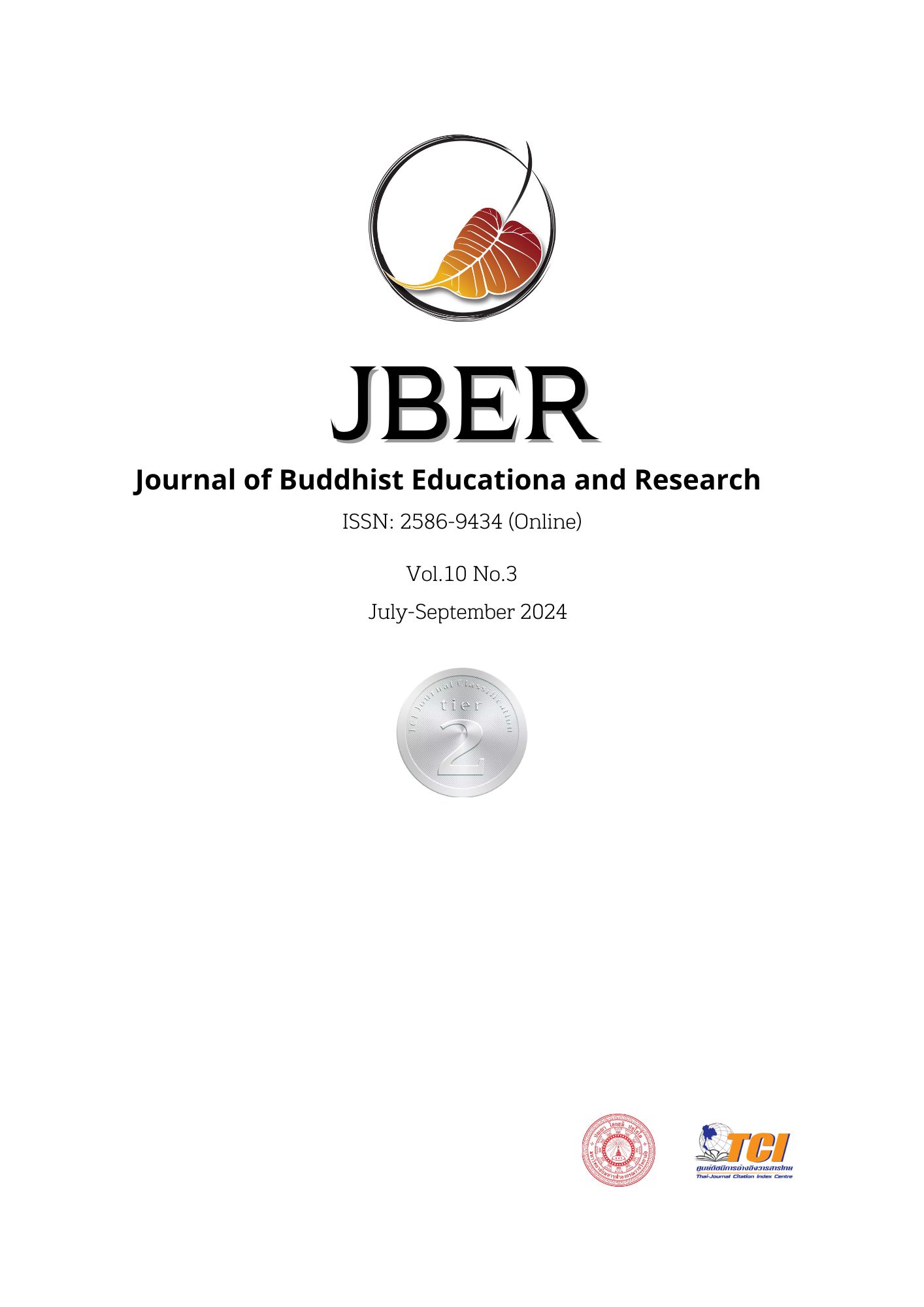The Development of a Learning Management Model for Enhancing Buddhist Volunteerism and Social Responsibility among Students in Schools under the Maha Sarakham Secondary Educational Service Area Office
Keywords:
learning management model, volunteer qualities, Buddhist social responsibilityAbstract
This research is a developmental study (R&D) with four objectives: 1) to examine the current problems and directions for improving learning management, 2) to develop a learning management model, 3) to experiment with the developed model, and 4) to study the outcomes of using the learning management model to foster Buddhist volunteerism and social responsibility among students in schools under the Maha Sarakham Secondary Educational Service Area Office. In phase 1, the sample included 331 Grade 12 students from Phadungnaree School and 10 social studies teachers from 5 schools. Data were collected using questionnaires and analyzed with descriptive statistics such as frequency, percentage, x̄, and standard deviation, along with qualitative analysis through interviews. Phase 2 involved 10 experts providing feedback in focus group discussions, while phase 3 tested the model with 30 Grade 12 students from Phadungnaree School using knowledge, skills, and attitude assessments. In phase 4, stakeholders evaluated the effectiveness, efficiency, and impact of the model through group discussions and content analysis. The findings showed that the model significantly improved knowledge (x̄ = 4.25), skills (x̄ = 4.09), and attitudes (x̄ = 4.08) related to Buddhist volunteerism and social responsibility. Overall, the model was rated as highly effective (x̄ = 4.05), with efficiency (x̄ = 4.13) and impact (x̄ = 4.33) also rated highly, indicating the model's success in enhancing desired characteristics in students.
References
Brown, L. (2018). The impact of experiential learning on students' social responsibility. Journal of Educational Research, 112(3).
Brown, L. (2020). The role of experiential learning in fostering social responsibility and volunteerism among high school students. Educational Review, 72(4), 495-510.
Dewey, J. (2019). Experience and education. Kappa Delta Pi.
Kaewketpong, P. (2024). Humanities and environmental ethics: Bridging cultural studies and sustainability. Journal of Exploration in Interdisciplinary Methodologies (JEIM), 1(2), 1–8. https://so19.tci-thaijo.org/index.php/JEIM/article/view/625
Kolb, D. A. (2020). Experiential learning: Experience as the source of learning and development. Pearson Education.
Lave, J., & Wenger, E. (2021). Situated learning: Legitimate peripheral participation. Cambridge University Press.
Lee, K., Kim, J., & Park, S. (2021). Enhancing student engagement and social responsibility through integrated volunteer activities in the curriculum. International Journal of Educational Development, 85.
Sarasean, T. (2024). Challenges and opportunities: Reforming the Thai education system for global competitiveness. Journal of Exploration in Interdisciplinary Methodologies (JEIM), 1(3), 25–35. https://so19.tci-thaijo.org/index.php/JEIM/article/view/741
Smith, J., Brown, L., & Zhang, Y. (2019). Integrating moral education into the curriculum: A study of the impact on students' volunteerism and social responsibility. Journal of Educational Research, 112(3).
Uthaphan, P. (2024). Foundations of thought: The role of western philosophy in shaping modern educational practices. Journal of Exploration in Interdisciplinary Methodologies (JEIM), 1(2), 33–41. https://so19.tci-thaijo.org/index.php/JEIM/article/view/629
Zhang, Y. (2021). Developing volunteerism and social responsibility skills through practical activities: Insights from high school education. Journal of Applied Education Studies, 7(2).
สำนักงานคณะกรรมการการศึกษาขั้นพื้นฐาน. (2552). แนวทางการจัดการเรียนรู้กรุงเทพมหานคร. โรงพิมพ์ชุมนุมสหกรณ์การเกษตรแห่งประเทศไทย จำกัด.
Downloads
Published
How to Cite
Issue
Section
License
Copyright (c) 2024 Author(s)

This work is licensed under a Creative Commons Attribution-NonCommercial-NoDerivatives 4.0 International License.





